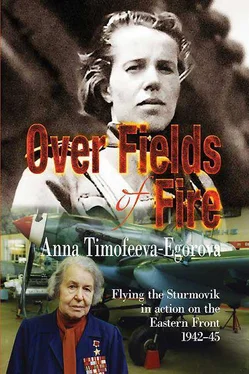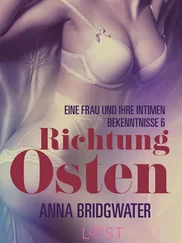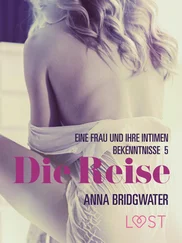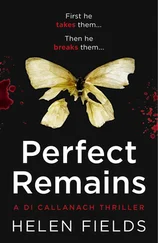It seems when they brought my death notice to mum, she was prostrated by grief, but refused to believe in my death. Some of the locals told her confidentially that there was a very reliable fortune teller who charged a lot, but told true fortunes and only true… Mum was warned that the fortune teller’s services would be dear, but mum collected some bric-a-brac and some money, and wrote a note to her elder daughter in Kouvshinovo, where the latter worked and lived with her family: “Manyushka! I need you badly for a day, take a day off from work and come around and stay the night”.
With difficulty Maria got permission to be absent from work and came to Volodovo by night. “My little girl, go to Spas-Yasinovichy. Our last hope is the fortune teller. Whatever she says we will go with.”
And Maria headed off at first light in the morning — 30 kilometres one way and as many back — all on foot. She had to do it in one day, for on the next day she had to be at work for the morning shift. The daughter carried out mum’s instructions, but the fortune teller divined that I wasn’t among the living. It looks like she didn’t pay her enough! Generally speaking, it’s rare for a fortune teller to divine bad news and not instill hope in a person. And my sister, instead of sparing mum with a white lie passed her the fortune teller’s ‘truth’. We had had a tradition in our family — always tell only the truth to mum no matter how hard it is…
After such news mum fell seriously ill again. And on top of that the Kalinin Region Military Commissariat had assigned her a pension instead of the pay mum had been getting from me. After that her faith that I was still alive was ruined completely…
Later, about five years after the war, I was called to the Noginskiy District Military Commissariat, where I was registered. Here they gave me, against a receipt, a writ to read, from the Kalinin Region Commissariat, in which they demanded a debt be recovered from me to the sum of three thousand roubles, allegedly for wrongful payment of pension to my mum over a period of five months. In case of non-payment they threatened to take the matter to court…
“I won’t pay”, I said then to a major — the head of the Commissariat’s 1st Department.
“Nobody asked them to assign my mother a pension instead of my pay.”
But then this idea entered my head: “However, let the Kalinin Region Commissariat exact my unpaid bonuses for combat sorties successfully carried out from the Air Force. Take as much as you need out of it, and send the rest to my home address!”
“Write a memo!” — The major ordered. I did. But more than half a century has gone since then, and not a peep out of them!
After more than a month of illness, mum made it to the church with difficulty and arranged with the priest to read the Orthodox burial service over me for the peace of the soul of the fallen ‘Warrior Anna’. By the way, the commemoration record — a booklet with a cross on its cover, in which there are records of prayers for my health, and separately, for my repose — is still kept in my desk. In the box for ‘repose’ is written ‘Warrior Anna’, and then (angrily!) the record is crossed out in a different sort of ink, by mum’s hand…
After the ‘funeral’ there was a wake. Only old women gathered for it: there were no young people at all in the village. Aunty Anisya — mum’s sister — told me about this wake later. She was a wonderful character! Whilst my mum was strict, truthful in everything, Aunty Anisya was a mischievous and merry jester. Sisters they were, but polar opposites. My Aunt had worked at the Kouvshinovo paper factory from the age of twelve — she’d bound notebooks. She married a seaman from the Baltic Fleet, her countryman, but he was killed during the Kronstadt rebellion 173 173 Translator’s note — the rebellion of the Red Baltic Fleet naval personnel against the Bolshevik dictatorship ‘for Soviet Power without Communists’ in 1921, thwarted by Red Army troops.
. All that Aunty Anisya had left from him was an enlarged photo of the dashing seaman and their two kids — Kolya and Panya, who she had had to raise on her own. With the years the pain of his loss had begun to pass away, and Anisya had acquired her cheerful character again.
After all my misfortunes I had at last arrived at mum’s in the village of Volodovo… We were sitting with our arms around each other, with my Aunty at the table covered by a festive homespun white tasselled tablecloth. A samovar polished with brick dust to a glitter close to gold — as it had seemed to me in my childhood — was boiling on the table. This samovar was the ‘medium’ one. It was called that because we had three samovars at home, presented by the priest Gavriil — mum’s uncle, brother of my Grandmother Anna. The first samovar was the biggest — a bucket of water would fit into it; the medium one contained half a bucket, and the smallest five glasses. Mum used to boil it up quickly early in the morning, and first of all drank tea from it. The big one would be heated up with charcoal beforehand, and only when the whole family was together. It was especially good at home on Saturdays. The banya 174 174 Translator’s note — Russian steam-bath.
would be heated, and at the beginning, when the heat was highest, the menfolk would bathe, and after that the womenfolk. After the banya we would drink tea till we sweated. On the table there would be dishes of soaked red bilberries, cranberries and whortleberries…
We had a lot of fiction literature at home. Where had those many books come to a remote village from? That same priest Gavriil used to bring them to us kids, as presents, and a lot of books had accumulated at our place. He used to tell us a lot of history, geography, knew plenty of verse. I remember Father Gavriil advising us what to read. And now, in 1945, when with my Aunty I sat at the festive table laid in honour of my ‘resurrection from the dead’, and when mum had come out of the kitchen bringing plates of snacks, Aunty announced loudly (so mum would hear it):
“And now, my little niece, I’ll tell you how your mum held your wake. I won’t tell a lie”, my Aunty began. “There was plenty of food on the table, there were wine glasses, and she went and took the decanter from the locker, poured each of us a full wine glass, and put the decanter back in the locker, and then turned the key around to lock it up!”
“What you’re saying is not true, Anisushka!” mum beseeched.
But Aunty Anisya, giving me a wink, went on: “What do you mean, not true? It’s the truth, the plain truth!”
Mum was distressed, having failed to understand another of Anisya’s jokes, but Aunty kept clowning, and so cheerful, so warm was it in my soul after all I had been through, that now I can’t convey all this, I can’t find the right words…
Here is another episode from that distant time. When mum had received a message from me, and the neighbours had confirmed that she hadn’t lost her mind and that her younger daughter Anyutka was alive, mum put on her holiday clothes in celebration and headed to the District Military Commissariat.
Later the military commissar would recall that visit: “A babushka 175 175 Editor’s note — Russian nickname for grandmother.
came in agitated — and went straight to me. ‘Sonny’, she says, ‘get me rid of this accursed pension!’ I begin to question the babushka , ‘what’s your surname, who are you, who is the pension for’, but she kept on about the same thing: “Get rid of the pension, and that’s it!’ At last I sorted out what was what, gave her a seat, gave her some tea — and she left, pacified…”
Читать дальше












